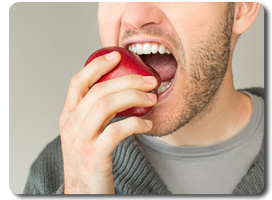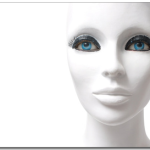 Does the sound of other people’s mouth noises really drive you crazy? Honestly, it does to me. Things like lip smacking, swallowing, cracking and crunching really annoys me. If it annoys you too then you’re not alone. Learn about misophonia in this episode. Also, a little more about my experiences playing Albin/Zaza in the musical La Cage Aux Folles, more on how we develop empathy for others and finally a new interpretation for what really was going on in the Stanley Milgram shock studies.
Does the sound of other people’s mouth noises really drive you crazy? Honestly, it does to me. Things like lip smacking, swallowing, cracking and crunching really annoys me. If it annoys you too then you’re not alone. Learn about misophonia in this episode. Also, a little more about my experiences playing Albin/Zaza in the musical La Cage Aux Folles, more on how we develop empathy for others and finally a new interpretation for what really was going on in the Stanley Milgram shock studies.
Get Better Grades On Your Psych Tests!
[image src=”6524″ alt=”Psychology Mnemonics Apps” href=”” title=”” info_content=”” lightbox_caption=”” id=”” class=”” style=””][image link=”true” target=”blank” src=”6463″ alt=”Psych Mnemonics app for iOS” href=”http://bitly.com/PM_Homepage” title=”The PsycExplorer app for iOS” info_content=”” lightbox_caption=”” id=”” class=”” style=””]
Resources on Misophonia
Triggering stimuli were all sounds produced by humans. Animal or other sounds usually did not cause distress, nor did sounds made by the patients themselves. Symptoms in 34 patients (81%) were triggered by eating-related sounds like lip smacking. 27 patients (64.3%) mentioned (loud) breathing or nose sounds as provocative. 25 patients (59.5%) could not tolerate the sound of typing on a keyboard or pen clicking sounds.
Empathy
Reading Literature Makes Us Smarter and Nicer
That immersion is supported by the way the brain handles language rich in detail, allusion and metaphor: by creating a mental representation that draws on the same brain regions that would be active if the scene were unfolding in real life. The emotional situations and moral dilemmas that are the stuff of literature are also vigorous exercise for the brain, propelling us inside the heads of fictional characters and even, studies suggest, increasing our real-life capacity for empathy.
Observing young people’s attachment to digital devices, some progressive educators and permissive parents talk about needing to “meet kids where they are,†molding instruction around their onscreen habits. This is mistaken. We need, rather, to show them someplace they’ve never been, a place only deep reading can take them.




Bettina
March 19, 2015Dear Michael,
I can totally relate to Misophonia!! I get so annoyed by nose sniffing, snoring, grinding of teeth, slurping… It drives me plain crazy like nothing else, I get really aggressive from one second to the next. I commute to work and before I pick a carriage on the train, I scan it for people eating, having cold, snorers – you name it…
It really bothers me since I feel like a complete jerk to get wound up like this from such trivial thing but there seems to bw no way to control it or get my brain to filter these sounds somehow as background noise. As it does with music, talking or any other sound.
Anyhow, off to do some some commuting now!
Greetings from Germany, I love your show!
Bettina
Michael
March 19, 2015Glad you liked the episode. It’s oddly reassuring when you find out that other people share your “affliction” isn’t it? But I was also relieved to find out that other people get annoyed by mouth sounds just like I do. Weird. Hard to believe that some people actually enjoy these sounds, but I’ll check out ASMR on YouTube (for as long as I can stand it anyway…).
Jack H.
March 19, 2015Thanks for giving me a name to the angst I’ve felt for years when hearing these mouth sounds. I have had such great annoyance by the sounds that I usually have to listen to music while eating with others.
I found the ASMR community (on YouTube) has quite a few people that seem to enjoy these sounds instead.
I had thought that intense exposure to the sounds would help me overcome the more casual occurrences. (It did not.)
Thanks for another great episode and interesting new topic.
Julien Couvreur
March 19, 2015I definitely have a reaction to such sounds. I always assumed everyone was like that.
In my experience, it has to do with my own mood. If there is tension with someone I am much more sensitive.